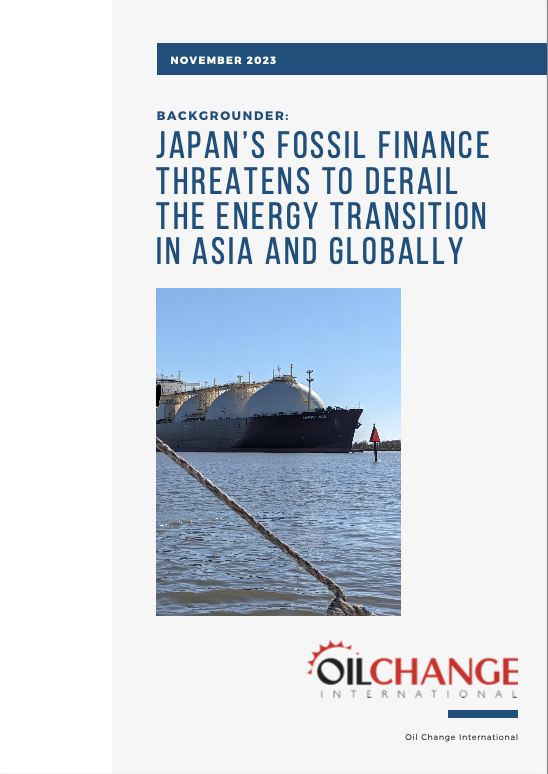
Backgrounder: Japan’s fossil finance threatens to derail the energy transition in Asia and globally
Despite the urgent need to phase out fossil fuels, Japan is driving the expansion of liquified gas (LNG) and other fossil-based technologies like ammonia co-firing, worsening the climate crisis and harming communities and ecosystems.
Download the briefing in English or Japanese.
Despite the urgent need to phase out fossil fuels, Japan is driving the expansion of liquified gas (LNG) and other fossil-based technologies like ammonia co-firing across Asia and globally. This will worsen the climate crisis and harm communities and ecosystems. Communities and movements are rising up – particularly in the Global South – to oppose Japan’s efforts to derail the transition to renewable-based energy systems.
The Japanese government is the world’s second-largest provider of international public finance for fossil fuels and the world’s largest provider of international public finance for gas. Japan has continued financing international fossil fuel projects this year, breaking the promise it made at the G7 to end international direct fossil fuel finance by the end of 2022. Japan is also considering financing for at least eight fossil fuel projects, including the expansion of the Cameron LNG export terminal and the Block B/O Mon gas project in Vietnam.
Meanwhile, other countries are rapidly phasing out government-backed finance for fossil fuels and shifting finance to renewables instead. As this unstoppable trend accelerates, Japan looks increasingly isolated.
Despite Japan’s claims, continued gas financing will undermine energy security and prolong an energy crisis caused by fossil fuels. The International Energy Agency’s (IEA) authoritative World Energy Outlook 2023 shows oil, gas, and coal demand plateauing this decade, and confirms that no new oil and gas investment can be permitted if the world is to keep to the 1.5 degree Celsius goal of the Paris Agreement. The IEA also stated last year that “no one should imagine that Russia’s invasion can justify a wave of new oil and gas infrastructure in a world that wants to reach net zero emissions by 2050.” This means that any further public finance for fossil fuels will only exacerbate the energy crisis, not solve it.

